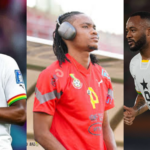Of all the things I’ve lost during the pandemic, my partner’s relationship with his girlfriend is the last I would have expected to mourn.
I first met Sophie over Instagram about three years ago. Preston showed me her account at Thanksgiving with his family, back when she was just a pretty girl he’d gone out with three or four times. He’d scrolled a little too long for my liking, held the phone an inch closer to my face than seemed strictly necessary.
Perfect beach sunsets, perfect healthy breakfasts, perfect coffees with steam rising off them in handmade ceramic mugs. Yoga handstands, artfully messy mermaid hair, legs for days. “OK, yep, I get the picture,” I said, leaning back and away.
Preston and I had been together for two years at that point, polyamorous from the start. I had been in open relationships before, and despite my immediate sense that he was a person I wanted to be with for a very long time, I knew I wanted to keep dating women.
He was making a late-20s escape from a conservative upbringing and was eager to try out new ways of living. For us, polyamory meant the freedom to sleep with other people, but also the ability to fall in love with those people. It meant moving into a Brooklyn apartment together, but making sure it was a two-bedroom.
Sometimes, when he was out on a date and I happened to be at home and not on a date myself, I did feel jealous. If I couldn’t find a friend to distract me, I would scrub the kitchen and listen to podcasts, organize my bookshelves, anything to quell the roar in my head.
And then he would come home to me — sometimes at night, sometimes in the morning — smiling and full of gratitude. I knew that feeling of gratitude, because I felt it myself, each time I came home to him.
Each return was a conscious choice, not an obligation. That we could be in love and also allow each other intimate connections to other people seemed a minor miracle. Still, for those first couple of years, neither of us got involved in anything very serious.
“I had the chance to meet Sophie in person when I went to visit Preston just before Christmas … I figured I might as well see what I was dealing with, and I also wanted to meet the person responsible for the new glow of happiness in Preston, so bright I could even hear it in his voice.”
And then, along came Sophie. Preston and I were living about 1,000 miles apart, as I’d moved down South for a one-semester teaching job, and he’d moved out to the very tip of Cape Cod for a seven-month writing residency. I wasn’t thrilled to learn about her, could not manage my usual vicarious excitement. She was so beautiful, and, more threateningly, she was local, while I was not. She would be part of his big creative adventure, and I would mostly be a harried voice on the phone, with papers to grade. He and I would not have the grounding experience of coming home to each other. It didn’t help that I felt too busy and stressed to find anyone to date in the small, conservative town where I worked. My apartment got cleaner and cleaner.
I had the chance to meet Sophie in person when I went to visit Preston just before Christmas. I took deep breaths as we walked through the chilly gunmetal twilight, past closed T-shirt shops and bookstores, Provincetown yawning into the off-season. I figured I might as well see what I was dealing with, and I also wanted to meet the person responsible for the new glow of happiness in Preston, so bright I could even hear it in his voice.
We found Sophie behind the counter at the pizza place her family owns, helping customers, and I was glad to have time to observe her before we spoke. She wore a red-and-black checked flannel shirt, and her smile revealed a funny incisor, an asymmetry which made her look less perfect, but even more charming. Her movements were confident and sure, and she handled the customers with a firm sort of friendliness. After they left, she came out and said hello, slipping us free slices and quick hugs before more people came in.
As Preston and I slid into a sturdy wooden booth, I thought of the pizza joint in my hometown in Maine, which I had only known as a child. The pizza was perfect, crispy and blackened on the bottom. The restaurant was so warm and bright, its wide windows glowing with the dark blue outside, a safe place over which Sophie presided.
Over the next few visits, Sophie and I crafted an intimate friendship. When she came over to Preston’s apartment, tucked under the eaves in an old clapboard house, the three of us hung out late into the evening. When we watched movies together, Sophie and I often fell asleep, heads on Preston’s wide shoulders. Our affection for him spilled over onto each other. It felt natural to take her hand on a walk, to push her long hair from her face if her hands were full.

One day, I was sitting on the kitchen counter, and she leaned on my thigh absent-mindedly while talking to him. Startled by her own easy familiarity, she turned to me and apologized. But the contact made sense, in that strange middle space between friendship and romance, something that was quickly beginning to feel like family.
These visits kept us from becoming adversaries. She was never simply Preston’s Girlfriend, or worse, The Other Woman. She was Sophie. Sophie, with the surprisingly deep laugh, who always prepares elaborate snacks for outdoor adventures with friends. Sophie, doing foolish British accents too early in the morning. Sophie, fielding all the calls and texts from her large, close-knit family, the stable base of support whenever there’s trouble.
Sophie did her research. She read my memoir, sending me a heartfelt, detailed note afterward. New to polyamory, she bought all the guidebooks, listened to all the podcasts, to wrap her heart and mind around this new way of approaching love. She learned the term “metamours,” which described us — dating a person in common, but not dating each other. It still didn’t come naturally to her, to share. And despite our cozy friendship, I was finding it uniquely hard to share with her.
From afar, I began to sense a deepening connection between Sophie and Preston. He called a little less often, seemed distracted. He said it was the writing, but I wasn’t so sure. I started asking him questions to which I couldn’t get clear answers. How did he feel about her? What were their plans for after his residency, when he and I would move back to New York? How did she feel about him — what did she want? What were they, exactly?
In my loneliness, I grew frustrated, reading his ambiguity as dishonesty. There was too much room for him to tell me, out of love, what he thought I wanted to hear. I insisted that I didn’t care what they were, that I could adapt, but that I just wanted to know. What I was really trying to determine was: How much room did I need to make? What role would this person have in my life? I’ve since learned that the heart can expand much more than we think. But it’s work, that expansion. I wanted to know how far I would be asked to stretch, so I could figure out if I could really do it. In her research, Sophie was doing the same thing.

Curiosity, I’ve learned, is the best antidote to jealousy. Sophie once used Preston to restage my favorite picture of David Bowie — black jeans, leather jacket, shirtless. I’d never seen him look so intense. On another day, I got to see him bartending at a charity fundraiser, head thrown back, laughing, center stage in a way he usually doesn’t allow. Sophie’s texts and photos meant I was never forgotten or disregarded, never excised from the equation. She could easily have imagined me away, but she never did.
Finally, she sent a selfie of them together, big flakes of snow suspended around them. He’s wearing a faux fur hat he bought with me on a trip to Maine, and his gloved hand is reaching over to snug her scarf closer to her smiling face, protecting her from the wind. As I looked, the knowledge that they were falling in love bloomed slowly within me. It seemed they hadn’t even realized it yet, and there was an odd safety in being the first one to see it.
That unfiltered image told me more than any strained conversation ever could have. I realized I’d been asking him for the impossible. Who can articulate their intentions, their exact, true feelings, at the beginning of a developing relationship? How could he answer me with precision if he wasn’t yet sure where it all would go? Like snow, love requires a delicate set of circumstances, slightly different each time. The air is heavy with possibility, and then, suddenly, beauty. Through Sophie’s eyes, I could see it.
In March 2020, as the pandemic fell upon us all, Preston and I were living together once more, and Sophie was home in Provincetown, preparing her restaurant for an unprecedented season. He and I had once again moved far away for jobs, this time together, to the middle of the country. Over the previous year, they had been visiting when they could. But finally, when it became clear that travel would remain fraught indefinitely, she called off their romantic attachment.
“Like snow, love requires a delicate set of circumstances, slightly different each time. The air is heavy with possibility, and then, suddenly, beauty. Through Sophie’s eyes, I could see it.”
Back when they were falling in love, when I was coming to understand the long-term realities of this polyamory thing, I might have been relieved at their transition back to friendship. I would have welcomed how much simpler it made my life. Less ambiguity, less worry, more time one-on-one. Instead, I thought about Sophie working to feed a community, to keep a decades-old business going, to care for her ailing mom. I knew she was more than capable, but I also knew how helpful Preston could have been, had he been there with her. As I read on our porch, my knee pressed to his, or sat in Zoom calls at my desk, hermetically safe, I had the hollow feeling of having won a contest no one had entered.
The pandemic robbed us all, for a time, of the ability to see our partners through other people’s eyes, to watch them tell a story to someone else at dinner, to see them perform onstage, to witness the adorable and infuriating regression that happens when they visit their parents. During these long periods of isolation, I had the daily companionship that I had sometimes envied. But I had only my own limited, myopic view. I missed those photos from Sophie — the surprise of a new expression, the evidence that my partner was appreciated by people other than me, that he was receiving abundant, varied love. I missed teasing him together, having the perfect witness to his peccadilloes and quirks. And I missed, too, the friendship Sophie and I had before, the two of us peering at each other with bemused expressions, as if to say, Who would’ve thought?
Last year, when the world opened back up and we accessed the immense privilege of vaccination, we each cautiously began dating again. There’s a woman I see in New York, although I don’t yet know what that connection will be. Preston has a local girlfriend, and this time, I don’t have to work so hard to open up space for her. It’s already there, ready to flex and change. There is always a spot on our couch for her, for movie nights and “Saturday Night Live,” and we trade notes on the weird daily habits of this person we love. Sophie has reconnected with a love from long ago, and this time, to her surprise, they’re trying polyamory. She recently met a new metamour, and told me that she’s extending the same welcome that I gave her.
The other day, Sophie texted a photo she once took of Preston and me. He’s sitting in a chair and I’m leaning over his shoulder, arms wrapped around his chest. The image is carefully framed, and close up. It’s a shot that was taken with love.





